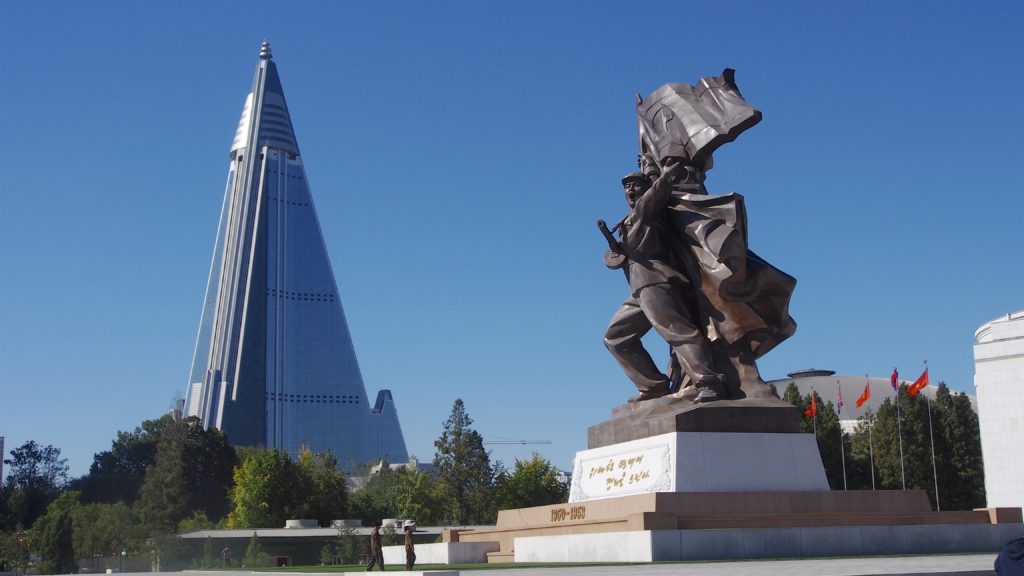The Peninsula
What Are the Right Conditions for an Inter-Korean Summit?

By Troy Stangarone
When Kim Yo-jong extended Kim Jong-un’s invitation to South Korean President Moon Jae-in to attend a summit meeting in North Korea at the “any convenient time,” President Moon responded by saying that the two Korea’s should work to make the “conditions right.” Creating the right conditions for an inter-Korean summit will be a delicate balancing act. President Moon will need to convince North Korea to engage in a series of behaviors that will help make a summit viable, while at the same time not overloading North Korea with so many demands that they decide to walk away. In essence, there are a few minimal things that North Korea will need to do, but making unrealistic requests of Pyongyang in advance of a summit would likely push North Korea to withdraw the offer.
For much of the past year, tensions on the Korean Peninsula have been high. They have reduced recently with North Korea’s decision to take part in the PyeongChang Winter Olympics, but continued calm is a baseline necessity for a summit meeting to take place. At a minimum, North Korea will need to continue the current Olympic pause and refrain from conducting nuclear weapon and missile tests, if not its penchant for colorful rhetoric as well. In some ways, restraint should be the understood condition. If North Korea were to resume testing prior to a summit, it would likely undermine the political support for a meeting. It would also suggest that Pyongyang is using the tests to intimidate South Korea and that it is less than sincere in its offer of dialogue.
North Korea will likely also need to accept in advance that an inter-Korean summit will not provide it with immediate economic benefits, nor will it forestall U.S.-ROK military exercises. The summit must be about dialogue, not about unilaterally giving in to North Korean demands. South Korea and the United States have affirmed that the policy of maximum pressure will remain in place until North Korea takes real steps towards denuclearization. Pyongyang should not expect that a new inter-Korean summit will produce new agreements on inter-Korean cooperation similar to the two previous inter-Korean summits.
An agreement on parallel exploratory talks with the United States would also help to improve the environment for a summit. In his meeting with Kim Yo-jong, President Moon also encouraged North Korea to talk with the United States. In the past the United States has insisted that in order for North Korea to improve relations with Washington, it also needed to do so with Seoul. It is important for Seoul to insist that improved relations with Seoul require improved relations with Washington to reinforce that North Korea cannot divide the two allies by reaching out to one and excluding the other.
Lastly, if refraining from nuclear and missile tests will help provide the calm that will be needed for a new inter-Korean summit, President Moon should also consider asking North Korea to make a gesture of good will by refraining from cyberattacks. South Korea experiences1.4 million cyberattacks a day from North Korea. It would be unrealistic to expect all cyberattacks from North Korea to disappear and Pyongyang would likely deny that it is behind the attacks, but it is not unrealistic to expect Pyongyang to refrain from cyberattacks that are efforts to steal currency from banks and cryptocurrency exchanges.
Until the Olympics, North Korea spurned every South Korean offer of dialogue. In not immediately accepting Kim Jong-un’s invitation, President Moon is signaling to North Korea that it needs to do more than request dialogue between provocations if it is seriously interested in engaging South Korea. If President Moon decides a new inter-Korean summit would be worthwhile, these are the types of things that could help to create an environment that would help to facilitate a new summit.
Troy Stangarone is the Senior Director for Congressional Affairs and Trade at the Korea Economic Institute of America. The views expressed here are the author’s alone.
Photo from Clay Gilliland’s photostream on flickr Creative Commons.
